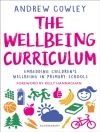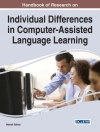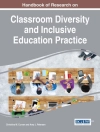Reflexive Narrative: Self-Inquiry Toward Self-Realization and Its Performance is latest addition to the Qualitative Research Methods series. Author Christopher Johns describes this unique method and its developmental approach to research to enable researchers’ self-realization however that might be expressed. This method focuses on systematizing the reflective process and providing structure while still remaining flexible to the needs of individual researchers and projects. Researchers collect data through reflections on everyday experiences and then selectively use the evidence of researcher’s insights. The text starts out with a brief introduction to narrative research and reflexivity, situating the method within the larger context of organizational practices. The next chapters introduce the steps for reflexive narrative research and walk readers through the movements of the reflexive narrative process, writing, reflection, dialogue, guidance, weaving, and audiencing. Additional coverage of ethics and research examples provide a foundation for application of the method to individual research. A chapter on structuring the method for a doctoral thesis furthers the applied nature of this method. Three extracts from studies provide research examples across several social science disciplines, including nursing and education. For students and researchers alike looking for new approaches to reflexive methods and looking to expand their ideas about self-research in a qualitative context,
Reflexive Narrative provides a starting place for their own examination of self in the context of research.
Tabla de materias
Prologue
Acknowledgments
About the Author
Chapter 1: Contempt: A Barrier to Realizing Leadership
Preamble
The Narrative
Afterword
Chapter 2: The Reflexive Narrative Bricolage
Reflexive Narrative
The Research Spectrum
Bricolage
Reflective Theory
Critical Social Science
Hermeneutics
Narrative Theory
Feminist Slant
Women’s Ways of Knowing
Non-Western Influence
Literary Theory
Summary
Activity
Chapter 3: The Six Dialogical Movements
The Six Dialogical Movements
Dialogue
The Hermeneutic Spiral
Summary
Activity
Chapter 4: Writing Self: The First Dialogical Movement
Recall
Mimesis and Anti-Mimesis
Writing
Journal Descriptions
Summary
Activity
Chapter 5: Structured Reflection: The Second Dialogical Movement
Structured Reflection
Mike
Applying the MSR Cues
Summary
Activity
Chapter 6: Drawing Tentative Insights
Conceptual Maps
The Framing Perspectives
Developmental Framing
Summary
Activity
Chapter 7: Cocreating Insights
Dialogue With Extant Knowledge: The Third Dialogical Movement
Guidance: The Fourth Dialogical Movement
The Community of Inquiry
No Formal Guidance
Summary
Activity
Chapter 8: Weaving the Reflexive Narrative: The Fifth Dialogical Movement
Narrative Time Span
Being Creative
Magical Realism
Writing From the Body
Showing Versus Telling
Using Tense and Dialogue
Giving Voice to Others
Using Metaphor
Images and Art
Narration
Writing for Performance
Summary
Activity
Chapter 9: Through a Glass Darkly
Preamble
Through a Glass Darkly Narrative
Activity
Chapter 10: Coherence and Ethics
Coherence
Eyes of Knowing
Criteria
The Validity Question
Rhizomatic Validity
Ethics
Summary
Chapter 11: Audiencing: The Sixth Dialogical Movement
Performance
Summary
Activity
Chapter 12: Structuring the Reflexive Thesis
Chapter 1 Background
Chapter 2 Narrative Construction
Chapter 3 The Reflexive Narrative
Chapter 4 Deepening the Insights
Chapter 5 Reflection on the Journey
MSc Leadership in Health Care
Ph D Program
Ph D Studies
Chapter 13: Concluding Words
Appendix A: Illustration of Adenike Akinbode’s Reflexive Narrative Writing
Appendix B: Extract From Margaret Graham’s Reflexive Narrative Thesis
Appendix C: Reflexive Narrative Publications
References
Index
Sobre el autor
Christopher Johns is an internationally acknowledged pioneer in developing reflective practices in health care practice, educational curriculum, and reflexive narrative research. Now an independent consultant, he was previously professor of nursing at the University of Bedfordshire, UK between 1991 and 2016. He convened the International Reflective Practice conferences between 1994 and 2016 and the Reflective Practice Forum in 2011 as a uniquely dialogical approach to conferencing. His recent books are Mindful Leadership (2016) and the fifth edition of his seminal text Becoming a Reflective Practitioner (2017). He lives in Cornwall with his wife Otter.












